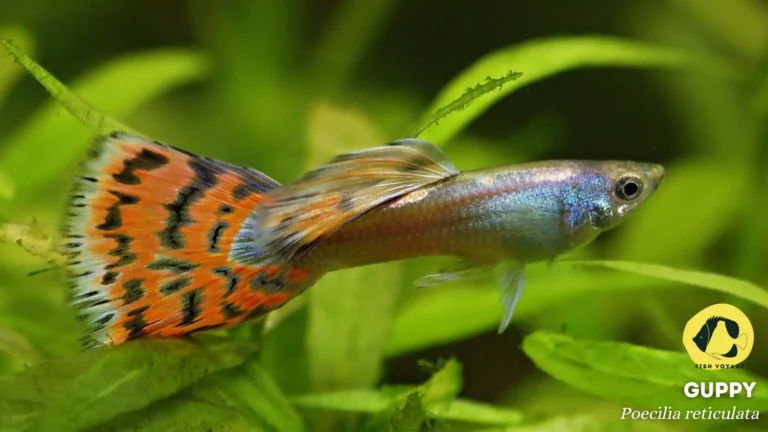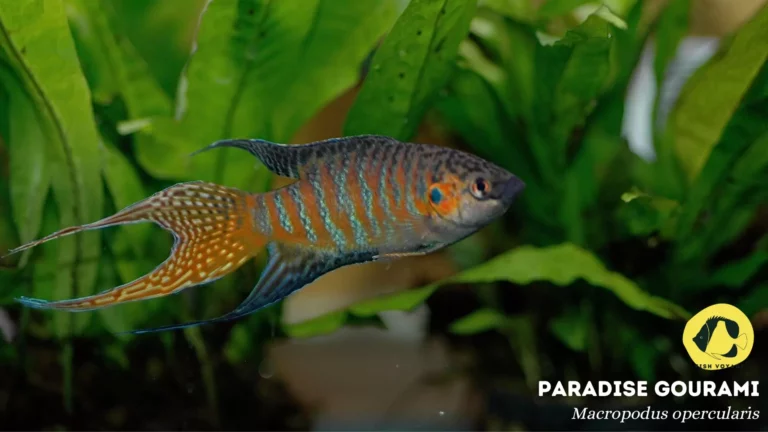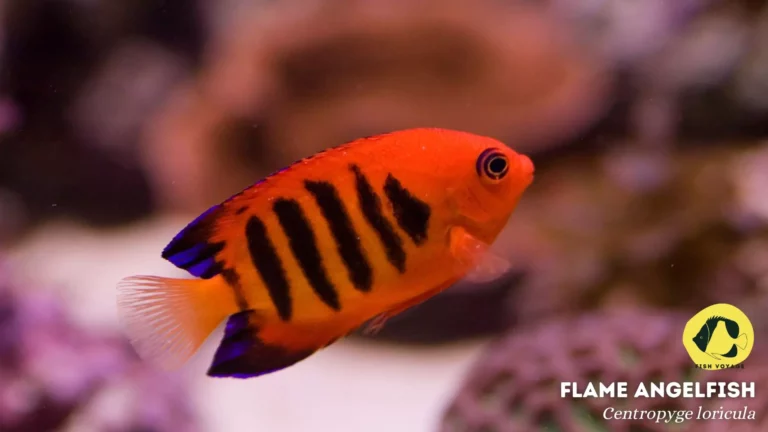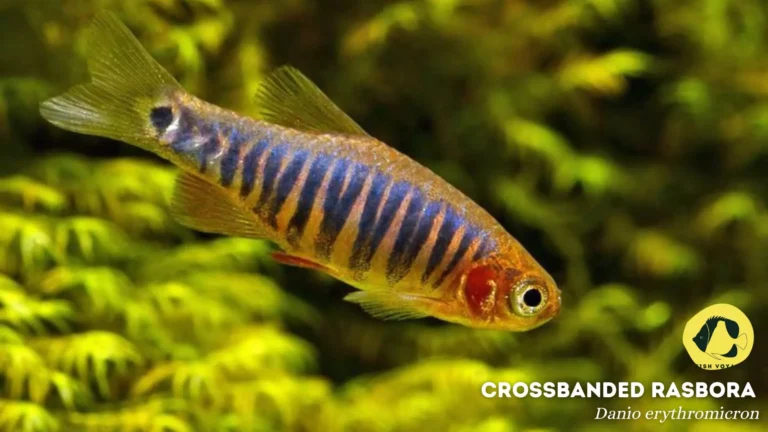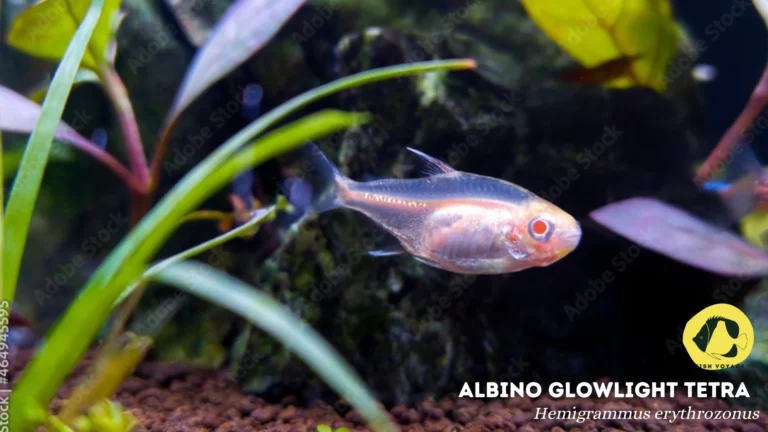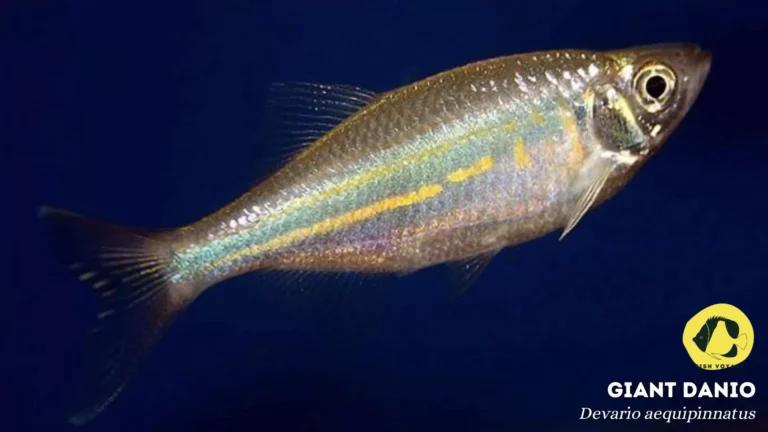How To Feed Guppies Cucumber?
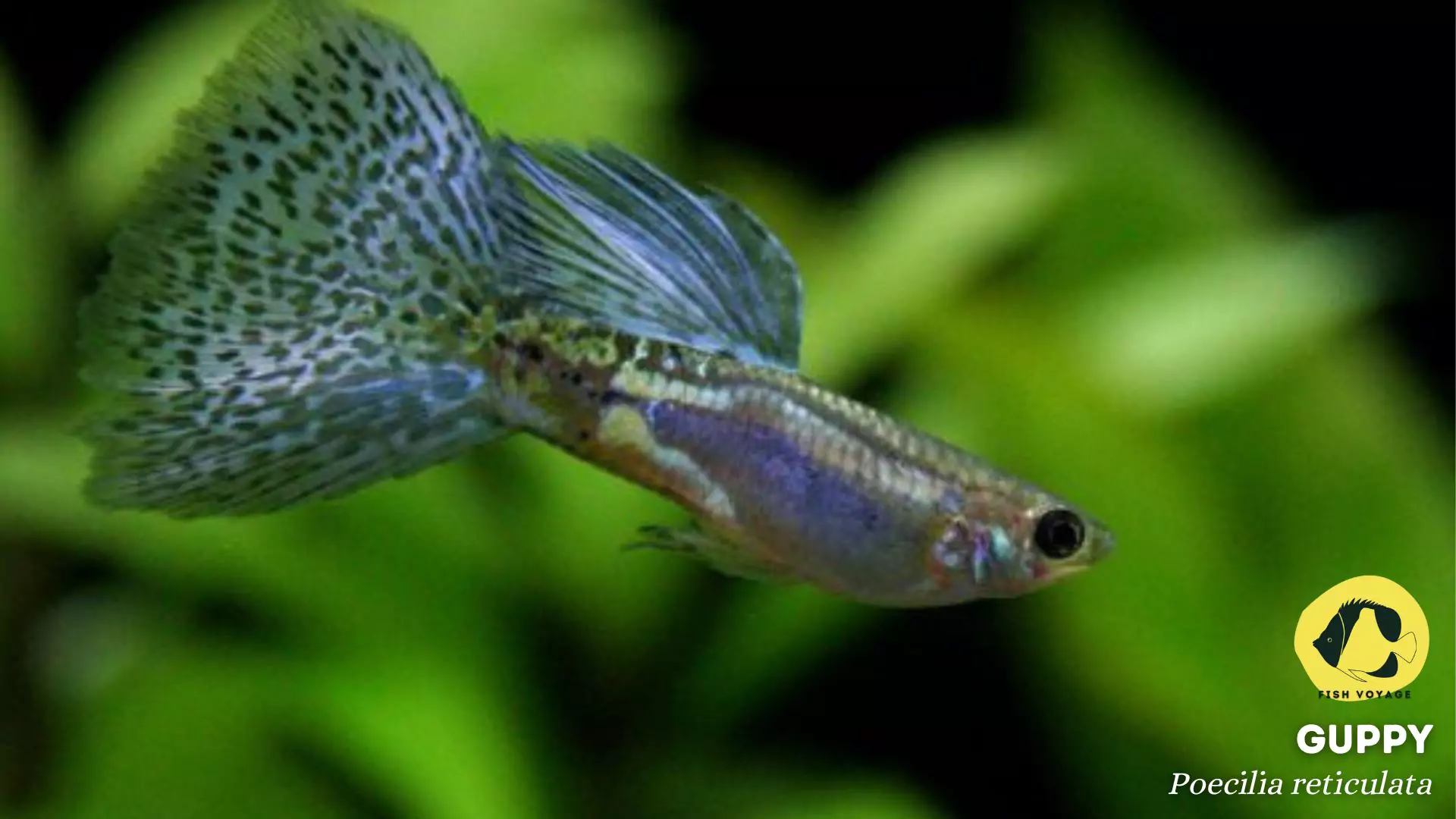
Welcome to our comprehensive guide on enhancing the well-being of your aquatic companions – the charming guppies. Guppies, scientifically known as Poecilia reticulata, are a popular choice among aquarists for their vibrant colors and playful demeanor. These small, yet resilient, freshwater fish originate from the tropical waters of South America and have become cherished members of aquariums worldwide.
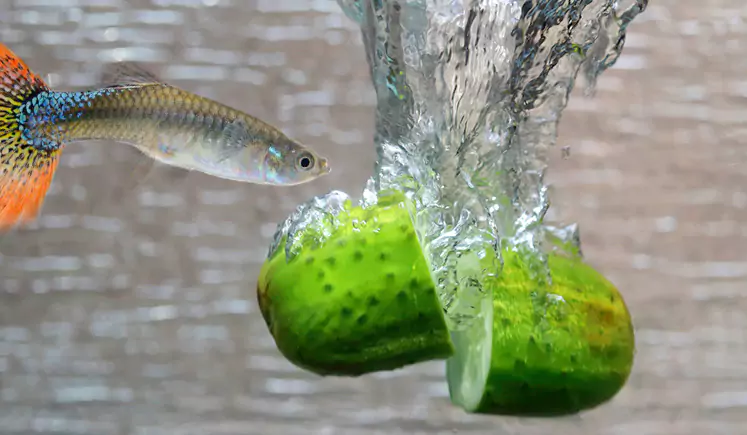
Maintaining the health of your guppies is paramount, and a key factor in achieving this is providing a well-balanced diet. A diverse and nutritious feeding regimen not only promotes their physical health but also contributes to the vibrancy of their colors and overall vitality. In this guide, we delve into an often-overlooked yet highly beneficial option – cucumber. While commonly associated with human salads, cucumbers offer a wealth of nutrients and hydration for guppies, making them a valuable addition to their diet. Let’s explore the unique advantages that cucumber brings to your guppies’ nutritional palette, ensuring a thriving and colorful aquatic community in your aquarium.
Benefits of Feeding Guppies Cucumber
Rich in Nutrients
Cucumbers stand out as a powerhouse of essential nutrients for guppies. Packed with vitamins, particularly A and C, as well as minerals like potassium, manganese, and magnesium, cucumber offers a comprehensive nutritional profile. These elements play pivotal roles in bolstering guppies’ immune systems, supporting healthy growth, and enhancing their overall vitality. The incorporation of cucumber into their diet ensures a well-rounded intake of essential nutrients crucial for maintaining their optimal health.
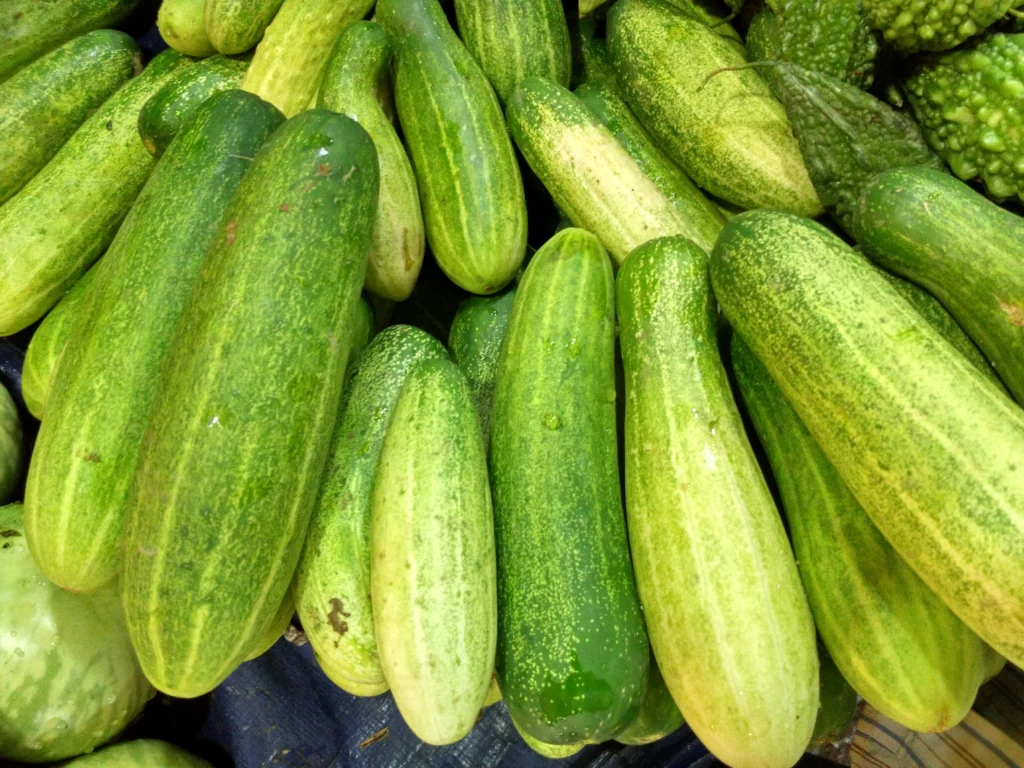
Digestive Health Benefits
Beyond the spectrum of nutrients, cucumber serves as a natural aid for digestive health in guppies. Its high water content promotes hydration, aiding in the digestion process and mitigating the risk of constipation, a common concern in captive fish. The fibrous composition of cucumber also contributes to maintaining a healthy gut, fostering a balanced and efficient digestive system for your guppies. By integrating cucumber into their diet, you actively contribute to the well-being of their digestive health, ensuring they thrive in their aquatic environment.
Variety in Diet for Psychological Stimulation
Variety is not only the spice of life but also a key element in keeping your guppies mentally stimulated. Introducing cucumber as a part of their diet provides a welcome change and engages their natural foraging instincts. This variety in their diet not only keeps them physically active but also mentally stimulated, preventing boredom and potential stress-related issues. Cucumber, with its unique texture and taste, offers a delightful divergence from standard fish food, enriching the lives of your guppies and promoting their overall psychological well-being.
Incorporating cucumber into your guppies’ diet goes beyond meeting their nutritional needs; it contributes to their holistic well-being by supporting their physical health, digestive processes, and mental stimulation. This simple addition can go a long way in ensuring your guppies lead a happy and healthy aquatic life.
Preparation of Cucumber for Guppies
Selecting Fresh and Organic Cucumbers
The first step in enhancing your guppies’ dining experience is choosing the right cucumber. Opt for fresh, organic cucumbers to ensure that your aquatic companions receive the highest quality nutrition. Freshness is key, as it guarantees the retention of essential nutrients and eliminates the risk of introducing harmful pesticides or contaminants into your aquarium ecosystem. By selecting organic cucumbers, you prioritize the well-being of your guppies, providing them with a wholesome and untainted dietary option.
Washing and Cutting Techniques
Once you’ve secured the ideal cucumber, the next crucial step is to prepare it with precision. Thoroughly wash the cucumber under cool, running water to remove any surface impurities. Utilize a soft brush if needed, ensuring that the cucumber is free from any residual pesticides or debris. When it comes to cutting, precision is paramount. Slice the cucumber into thin, fish-friendly portions, considering the size of your guppies and the dimensions of your aquarium. The goal is to create manageable pieces that facilitate easy consumption while minimizing waste. By employing meticulous washing and cutting techniques, you guarantee a safe and palatable cucumber feast for your aquatic companions.
Removing Seeds for Safer Consumption
While cucumber seeds are harmless for human consumption, the same cannot be said for our aquatic friends. Guppies, in particular, may struggle with the seeds due to their small size and potential difficulty in digestion. To ensure safer consumption, delicately scoop out the seeds from each cucumber slice using a spoon. This extra step not only prevents any potential digestive discomfort for your guppies but also streamlines their dining experience. By taking the time to remove seeds, you contribute to the overall safety and satisfaction of your guppies during their cucumber indulgence.
Mastering the art of preparing cucumber for your guppies involves a thoughtful approach, from selecting premium produce to meticulous washing, cutting, and seed removal. By investing time in this process, you guarantee a culinary experience that aligns with the well-being and dietary preferences of your aquatic companions.
Feeding Guidelines
Frequency of Cucumber Feeding
When introducing cucumber into your guppies’ diet, striking the right balance is essential. Aim for a frequency that complements their existing feeding routine. Two to three times a week is generally a suitable starting point. This ensures your guppies enjoy the nutritional benefits of cucumber without compromising the variety in their overall diet. Regular observation of their response to cucumber feedings will guide you in adjusting the frequency to suit their preferences and dietary requirements.
Proper Portions to Avoid Overfeeding
While cucumber is a nutritious addition, moderation is key to prevent overfeeding. Guppies have delicate digestive systems, and excess consumption can lead to health issues. Offer cucumber in small, bite-sized portions that your guppies can consume within a few minutes. Monitoring their response to the initial servings will help you gauge the appropriate portion size. Remember, a balanced diet is about variety, so use cucumber as a supplemental treat rather than a primary food source to maintain a healthy equilibrium in their nutrition.
Observing Guppy Behavior During Feeding
Guppy behavior during cucumber feedings provides valuable insights into their preferences and satisfaction. Observe their response to the introduction of cucumber, noting the enthusiasm or hesitation displayed. Active and eager feeding behavior indicates a positive reception, while disinterest may suggest a need for adjustments. If some guppies seem reluctant, consider experimenting with cucumber preparation methods or adjusting the frequency. This attentive observation ensures that you tailor the cucumber feeding experience to the unique preferences of your guppy community, promoting both their physical health and mental well-being.
Incorporating cucumber into your guppies’ diet involves a delicate balance of frequency, portion control, and attentive observation. By adhering to these feeding guidelines, you provide your guppies with a nutritious and enjoyable addition to their diet while maintaining the overall harmony of their aquatic lifestyle.
Other Compatible Foods
Diversifying Guppy Diet
While cucumber offers a nutritious supplement to your guppies’ diet, diversity remains a key principle in ensuring their overall well-being. Consider incorporating a range of foods to meet their diverse nutritional needs. This can include high-quality flakes, pellets, and live or frozen foods. A varied diet not only enhances the nutritional profile but also provides mental stimulation for your guppies. By diversifying their diet, you cater to their unique tastes and nutritional requirements, contributing to their holistic health.
Introducing Pellets and Flakes Alongside Cucumber
Strike a balance between the natural goodness of cucumber and the convenience of formulated foods like pellets and flakes. High-quality guppy pellets and flakes are specifically designed to meet the dietary needs of these small tropical fish. Introducing these alongside cucumber ensures that your guppies receive a well-rounded mix of nutrients. Pellets and flakes serve as a convenient and complete source of essential vitamins and minerals, complementing the organic richness of cucumber. This combination ensures that your guppies thrive on a comprehensive and balanced diet.
Balancing Macronutrients for Optimal Health
Achieving optimal health for your guppies involves a nuanced understanding of their macronutrient requirements. While cucumber contributes to certain vitamins and minerals, it’s essential to balance protein, fats, and carbohydrates in their diet. Guppies, being omnivores, benefit from a protein-rich diet for growth and energy. Integrate high-quality fish pellets or flakes that provide the necessary protein content. This careful balance of macronutrients contributes to the overall health, vitality, and longevity of your guppies, supporting their growth and immune functions.
In the world of guppy nutrition, harmony is found in diversity. By incorporating a mix of natural treats like cucumber and formulated foods like pellets and flakes, you create a comprehensive diet that caters to the diverse needs of your guppies. This approach not only ensures their physical health but also enriches their daily dining experience in your aquarium.
Potential Risks and Precautions
Monitoring for Signs of Overeating
While cucumber is a valuable addition to your guppies’ diet, vigilant monitoring is crucial to prevent overeating. Guppies, known for their enthusiastic feeding behavior, may not exhibit self-restraint. Watch for signs of overconsumption, such as lethargy, distended stomachs, or changes in swimming patterns. Should these indicators arise, promptly adjust the cucumber feeding frequency and portion sizes. By maintaining a watchful eye on their behavior, you can ensure a balanced diet that supports their health without the risks associated with overeating.
Avoiding Pesticides and Contaminants
The quality of the cucumber you offer to your guppies directly impacts their well-being. Opt for organic cucumbers to mitigate the risk of harmful pesticides and contaminants. Thoroughly wash the cucumber before preparation, eliminating any residues that could pose a threat to your aquatic companions. This precautionary step safeguards your guppies from potential toxins, ensuring that their diet remains a source of nourishment rather than a potential hazard.
Adjusting Diet for Guppies with Specific Health Conditions
Every guppy is unique, and some may have specific health conditions that necessitate a tailored diet. If you observe any signs of illness or if your guppy has a known health condition, consult with a veterinarian or a knowledgeable aquarium professional. Adjust the diet accordingly, considering specialized foods or modifying the cucumber preparation method to accommodate their specific needs. This personalized approach ensures that your guppies receive the care they require, supporting their health on an individualized basis.
In the realm of guppy nutrition, precaution is paramount. By attentively monitoring their behavior, prioritizing organic produce, and customizing diets for individual health considerations, you not only enhance the benefits of cucumber feeding but also safeguard the well-being of your aquatic companions. These proactive measures contribute to a thriving and resilient guppy community in your aquarium.
Conclusion
Recap of the Benefits of Cucumber Feeding
In summary, the inclusion of cucumber in your guppies’ diet offers a myriad of benefits. From providing essential nutrients such as vitamins A and C to supporting digestive health with its high water content, cucumber stands as a valuable addition to their nutritional palette. Its role in promoting psychological stimulation through variety contributes to the overall well-being of your guppies. By embracing cucumber feeding, you embark on a journey towards fostering vibrant colors, robust health, and contented behavior among your aquatic companions.
Encouraging a Varied Diet for Happy and Healthy Guppies
While cucumber is a noteworthy addition, the key to sustaining a thriving guppy community lies in variety. Encourage a diverse diet that encompasses not only cucumber but also high-quality pellets, flakes, and live or frozen foods. This variety not only ensures a comprehensive intake of essential nutrients but also keeps your guppies mentally stimulated and engaged. Strive for a balanced approach that aligns with the natural omnivorous tendencies of guppies, fostering both happiness and health in your aquatic habitat.
As you embark on this nutritional journey with your guppies, remember that a balanced diet is the cornerstone of their well-being. By integrating cucumber and other compatible foods, you create an environment that mirrors the richness of their natural habitat. As your guppies flourish with vibrant colors and lively activity, the rewards of your dedication to their nutrition become evident. Here’s to the joy of nurturing happy and healthy guppies in your aquarium.
Additional Resources
Explore the following resources to enrich your understanding of feeding guppies cucumbers. From community forums to comprehensive guides and scientific profiles, these sources offer diverse perspectives for a well-informed and successful guppy feeding experience.
- Aquatic Community Forum: Engage with a community of guppy enthusiasts. Share experiences, learn from fellow keepers, and get advice on integrating cucumber into your guppies’ diet.
- FishLore: Join discussions on guppy care, including nutritional strategies. Connect with seasoned aquarists to gather insights into the successful incorporation of cucumber and other foods.
- Guppy Care by Tabitha Jones: Expand your knowledge with this book on aquarium nutrition. The book offers detailed insights into feeding practices, including the role of cucumber.
- Fish Voyage’s guide on Guppies: Everything you need to know about guppies.
Call to Action
Encourage Readers to Share Their Experiences
Your experiences as a guppy enthusiast are invaluable, and we invite you to share them with our community. Whether you’ve recently introduced cucumber to your guppies’ diet or have insights into other nutritional practices, your stories can inspire and guide fellow aquarists. Share your successes, challenges, and any innovative approaches you’ve taken to enhance the well-being of your guppies. Your experiences contribute to the collective knowledge of our community and foster a dynamic exchange of ideas.
Feedback and Questions
We value your feedback and are eager to hear about your journey with guppy nutrition. If you have any questions about cucumber feeding or if there are specific topics you’d like us to cover in future guides, please share them. Your input guides our content, ensuring that we address the topics that matter most to you. Whether you’re a seasoned guppy keeper or just starting your aquatic adventure, your questions and feedback are essential in creating a resource that resonates with the diverse needs of our readers.
Your active participation is what makes our community thrive. Share your experiences, ask questions, and let’s build a knowledge hub that supports every guppy enthusiast on their quest for excellence in aquarium care. Together, we can create a space where everyone, from novices to seasoned aquarists, can learn, share, and celebrate the joys of keeping happy and healthy guppies.
Frequently Asked Questions (FAQs)
1. How often should I feed my guppy cucumber?
Finding the right frequency is crucial for a balanced diet. Learn the optimal schedule to introduce cucumber and ensure your guppies receive its nutritional benefits without overfeeding.
2. Can all types of guppies eat cucumbers?
Guppy species may vary, and it’s essential to know if cucumber is suitable for all. Explore the compatibility of cucumber with different guppy varieties and ensure a safe and nutritious diet for your aquatic companions.
3. What should I do if my guppies refuse to eat cucumbers?
Guppies, known for their diverse tastes, might show reluctance. Discover troubleshooting tips and alternative methods to encourage even the pickiest eaters to include cucumber in their diet.
4. Are there specific cucumber varieties that are better for guppies?
Not all cucumbers are created equal. Uncover insights into the best cucumber varieties for guppies, considering factors like size, texture, and nutritional content for an optimal feeding experience.
5. Can cucumber be the primary food source for guppies?
While cucumber offers numerous benefits, it’s crucial to maintain a varied diet. Understand the role of cucumber as a supplement and learn how to balance it with other foods to meet the diverse nutritional needs of your guppies.Not all cucumbers are created equal. Uncover insights into the best cucumber varieties for guppies, considering factors like size, texture, and nutritional content for an optimal feeding experience.

